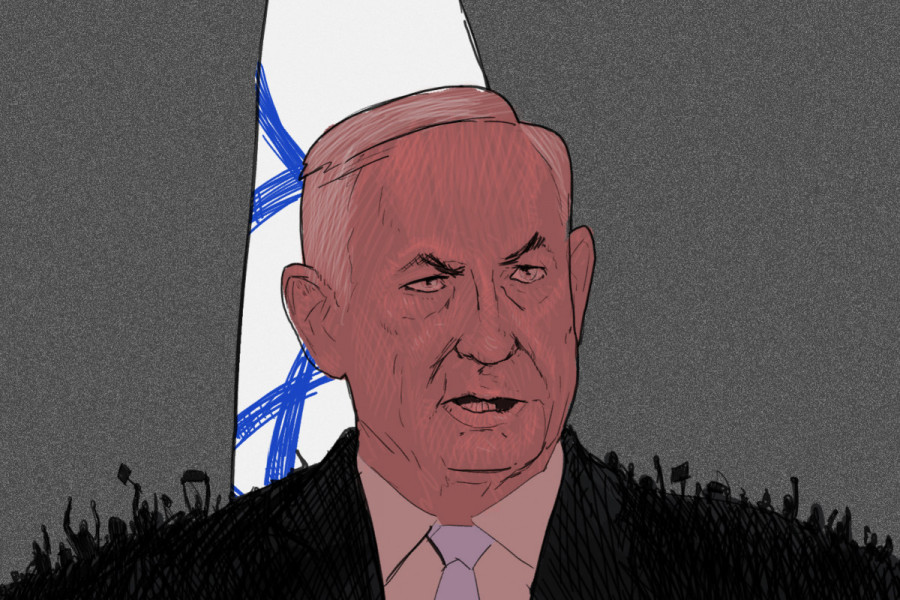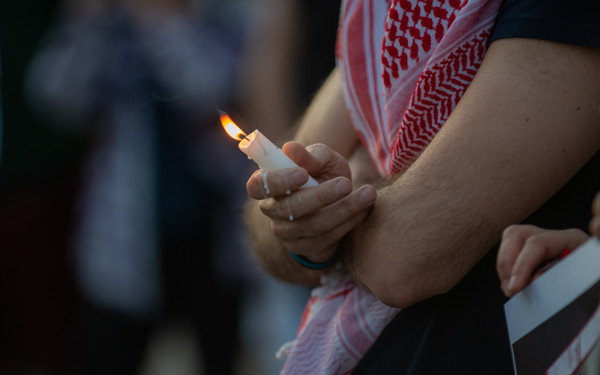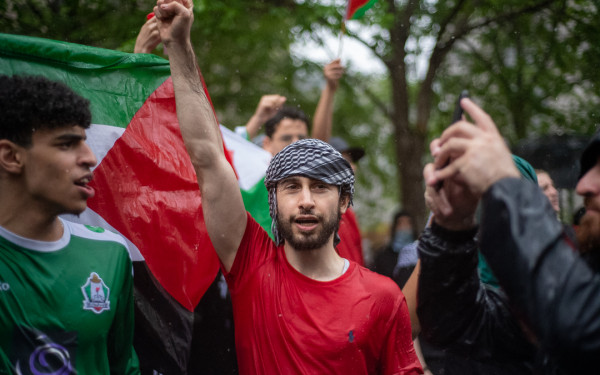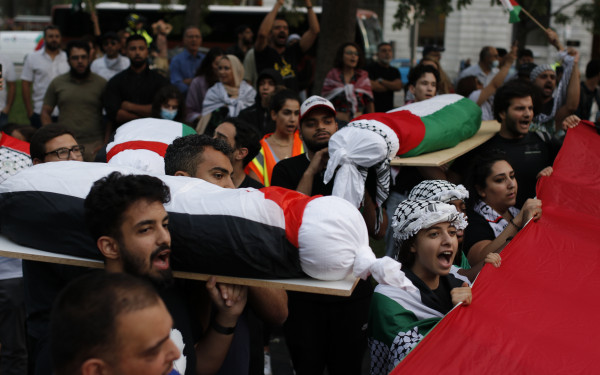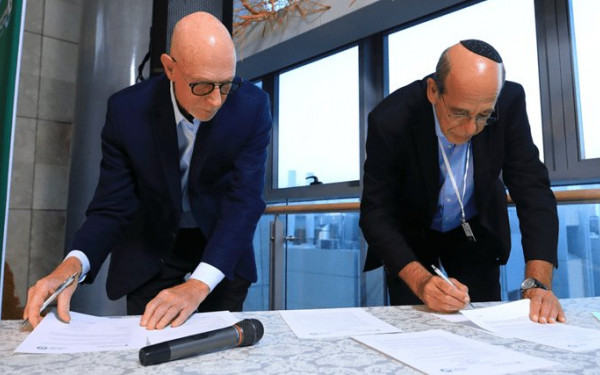2003 & 2004 documentaries reflect ongoing Israeli-Palestinean debates within Concordia
Netanyahu’s invitation to Concordia in 2002 sparked debate and controversy that divided the student body; which remains divided
After watching the 2004 documentary Discordia and the 2003 documentary Confrontation @ Concordia, I noticed several parallels between these documentaries and the ongoing Palestinian crisis. I was surprised that nothing seems to have gotten better for Palestine since 2004. In fact, the crisis has only escalated.
I’m saying “Palestinian crisis” because “Israeli-Palestinian conflict” does not do the situation justice. It is not a “conflict,” it is a genocide. Palestine has been the victim of ethnic cleansing and dispossession to the hands of Israel since 1948. There is nothing complex about that.
The premise of the aforementioned documentaries was the invitation of current Israeli Prime Minister Benjamin Netanyahu to Concordia in 2002.
Several pro-Palestinian students felt betrayed by the university for letting a war criminal give a lecture on campus. They were outraged that Netanyahu, a then-former Israeli prime minister known for opposing the 1993 Oslo Accords, was invited to Concordia. These peace accords were signed by Netanyahu’s predecessor, Yitzhak Rabin, and the then-leader of the Palestinian Liberation Organization, Yasser Arafat. Netanyahu’s death toll today is of nearly 3,500—and counting—Palestinian civilians and soldiers.
These students protested in front of Concordia on the day of the scheduled lecture in order to prevent Netanyahu from speaking. When the police got involved, the protest went south and became violent. The documentaries show footage of police brutality, but fail to emphasize that this was the catalyst for the violence that ensued. The documentaries implied the police became involved because the protests were violent—when it was actually the other way around.
The police eventually made Concordia cancel the lecture for safety reasons. While pro-Palestinian students were relieved, pro-Israeli students became increasingly resentful towards pro-Palestinian students, who simply wanted justice for Palestine.
Pro-Israeli students claimed the protest was anti-Semitic and hateful in nature, and Confrontation @ Concordia took the same position.
“Concordia has been shaken by a groundswell of hatred and prejudice and that toxic atmosphere has spread to other universities across the continent,” the narrator said, following the announcement that Netanyahu would not speak at Concordia.
This sentence—judgemental, closed-minded, and argumentative in nature—left no room for viewers to judge for themselves whether the protest was justified or not.
The pro-Palestinians were hardly prejudicial towards the pro-Israelis. They attempted to reason with pro-Israelis several times by telling them about the Palestinian suffering Israel was causing, as shown in the documentaries. As a Canadian Concordia student, I don’t understand how anyone could be so blindly patriotic that they do not see when their country is in the wrong. Students who defend Israel—whether it be in 2004, in 2021, or even in 1949—are genocide apologists.
Whatever the intentions of the documentary were, it did not help fight anti-Semitism, as Aaron Maté, former Concordia Student Union president, wrote in an article for rabble.ca. In fact, it further divided Palestinians and Israelis by turning them against each other instead of attempting to understand the anger of Palestinians.
Confrontation @ Concordia even stigmatized pro-Palestinian activism within Concordia by comparing pro-Palestinians students to violent terrorists. It even likened the CSU to Nazis. The CSU was not responsible for causing a genocide, it was merely denouncing the actions of a country who is committing one because no one else seemed to care enough to speak up for Palestine.
Sameer Elatrash, a spokesperson for protestors, was later accused of anti-Semitism, as the documentary Discordia shows. He mentioned that he never said or wrote anything anti-Semitic.
“It’s a very convenient explanation,” Elatrash elaborated. “If you’re going to be an apologist for Israel and the occupation, you have to deny that there is any Palestinian suffering [...] You have to furnish another explanation to why Palestinians are revolting, and that, of course, is that Palestinians are simply anti-Semitic. Why else would they revolt?”
Indeed, with the history the Jewish people have, it is very difficult for non-Jews to defend themselves when they are called anti-semitic. Jewish people have the right to call out anti-Semitism, which is still very prominent in society. However, when they intentionally misconstrue criticism towards Israel as anti-Semitism, then their argument becomes one of bad faith. And how can one debate these bad faith arguments?
Today, nearly two decades after these documentaries were aired, people are still afraid to call the Palestinian genocide as it is, opting for the term “conflict” instead in order to avoid being called anti-Semitic. But how does critizing Israel make one anti-Semitic? No country is immune to criticism, especially not one who has been bombing their neighbour for the past 73 years.
With the rise of the media’s attention on the Israeli genocide of Palestinians, people are reminded daily that Israel is unlawfully occupying Palestinian territories and bombing civilians. This awareness should push countries like Canada and the USA to come to Palestine’s defence, just like how they rushed to bomb Iraq at the first hint of human rights violations.
However, that has not been the case. The world has been hesitant to denounce Israel’s actions out of fear of being labelled anti-Semitic. The past 13 Canadian prime ministers have watched silently as Palestine has suffered one the greatest genocides in history—one that is barely even recognized—and reduced to “a conflict.”
If we must choose between being a genocide-apologist and being an anti-Zionist, I do not think it is a difficult choice.
The Link apologizes for the inaccurate portrayal of the Israeli occupation of Palestine and the insensitive language used in a previous version of this article. This article has been updated to more accurately depict the Palestinian crisis.

